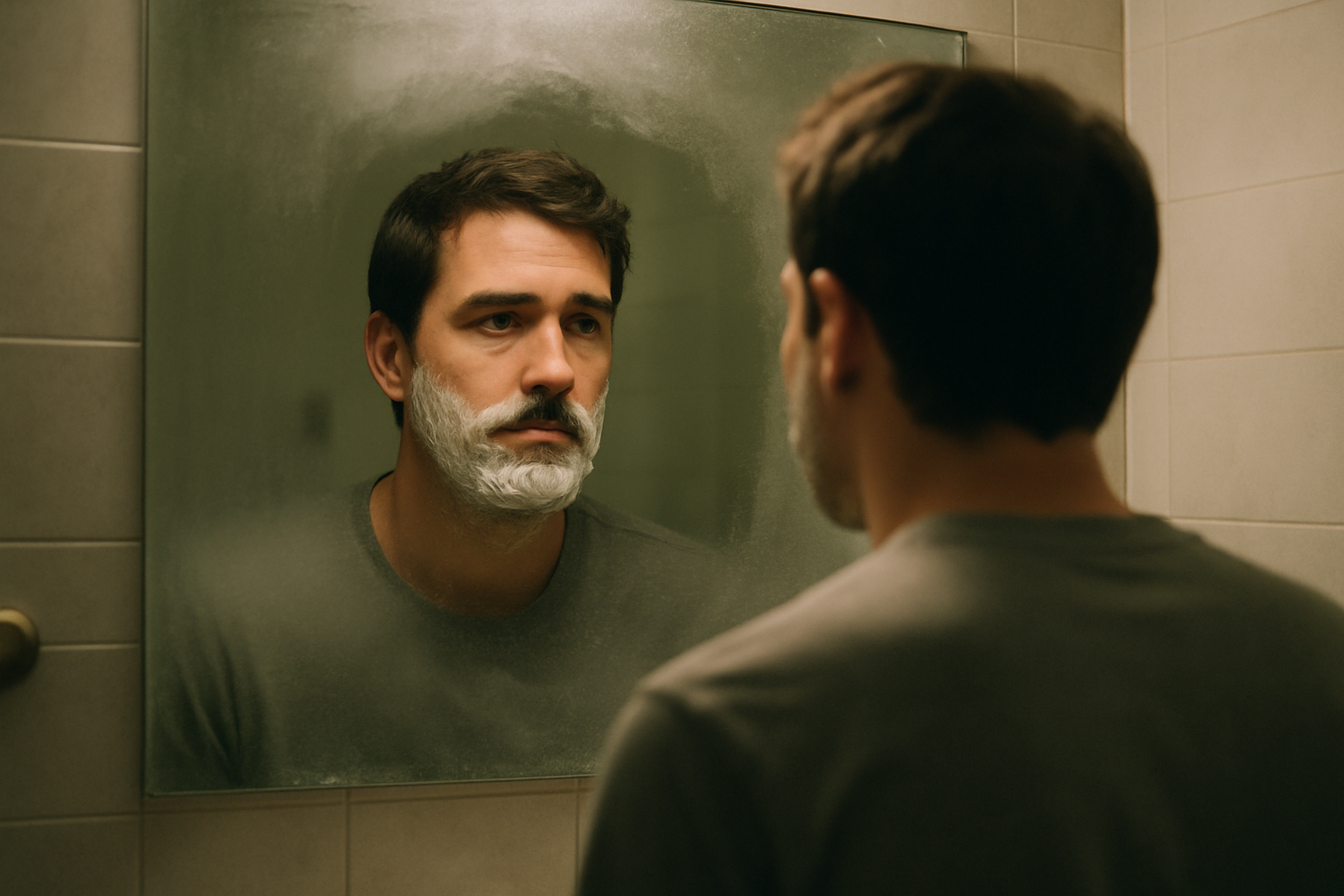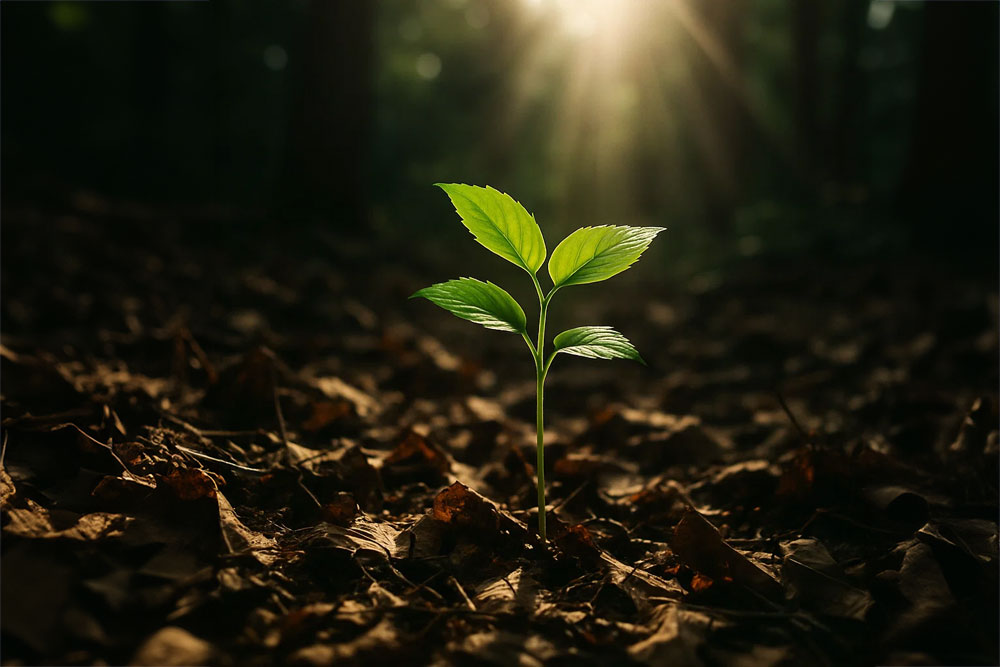We've all heard it. That vague, shimmering piece of advice that floats around in Instagram captions, graduation speeches, and self-help books: "You just need to find yourself."
It sounds noble. Poetic, even. Like you're a set of car keys that slipped between the couch cushions, waiting patiently to be found by the wiser, more evolved version of yourself. But let's be honest—this whole "finding yourself" thing? It's a myth. A well-meaning, but misleading myth that can actually keep you stuck rather than help you grow.
So, what if we just dropped the idea altogether? What if the real magic isn't in finding some perfect version of you, but in working with the one that's been here the whole time?
Let's dig into that, shall we?
The Problem With "Finding Yourself"
Let's start with why this phrase is so seductive. It promises clarity. A sudden "aha!" moment where the clouds part and—hallelujah!—you realize you were meant to be a life coach, or a sculptor, or someone who owns 17 cats and makes artisanal jam in a mountain cabin. It's comforting to believe that if we look hard enough, we'll discover the real us just waiting to be unlocked like a secret level in a video game.
But here's the truth: this belief often implies that who you are now isn't good enough. That there's a "correct" you somewhere out there, and until you find it, you're a work-in-progress mess. This not only adds pressure, it creates the exhausting illusion that we're always one self-help retreat or spiritual breakthrough away from finally being complete.
And worse, it can lead to identity whiplash. You try yoga. Then van life. Then maybe ayahuasca in the jungle. Still not found yourself? Weird! Must be doing it wrong. Time to try goat therapy.

You're Not Lost, You're Just...Human
The truth is, you're not a puzzle to solve or a treasure map to decode. You're not lost. You're just alive—and that means being complex, changing, imperfect, and sometimes deeply confused. Welcome to the club. We have snacks.
What if, instead of viewing yourself as incomplete, you started with the assumption that you're already enough?
This doesn't mean you stop growing. It means your growth starts from self-compassion, not self-criticism. It's the difference between trying to "fix" yourself and learning how to better support yourself.
Think of it this way: a plant doesn't need to "find itself" before it grows. It just needs the right conditions—light, water, space. You're no different.
Growth Starts With Self-Acceptance
Personal development gets a lot easier when it stops being a fight. When you stop resisting who you are and start getting curious instead.
Self-acceptance isn't about giving up. It's about being radically honest about what's true for you right now—your quirks, your patterns, your fears, your strengths—and deciding to meet yourself there with kindness.
Here's what happens when you do that:
- You stop wasting energy pretending to be someone you're not.
- You start seeing where your real boundaries, desires, and passions are.
- You unlock the ability to change because you've finally dropped the shame that's been weighing you down.
In other words, acceptance creates space. And in that space, you grow.
Work With Your Natural Tendencies (Not Against Them)
You are not a blank slate. You have preferences, rhythms, habits, and little ways you move through the world. When you try to bulldoze through these in pursuit of some ideal version of yourself, you burn out. Fast.
Let's say you're an introvert who keeps trying to "find" your confident, extroverted self at endless networking events. Or maybe you're a creative thinker who keeps forcing yourself into spreadsheets and task lists, wondering why you feel lifeless. These aren't flaws. They're clues.
Start by noticing where your energy flows easily. Where do you feel alive, curious, or at ease? That's your compass.
Growth doesn't mean becoming someone else—it means becoming more you. More honest. More aligned. More free.

What Actually Helps You Grow: Practical Steps
Now that we've (lovingly) tossed the "find yourself" myth in the bin, let's look at what does help you build a more authentic, grounded version of growth:
1. Cultivate Self-Awareness (Without the Judgment)
Start small. Journaling, mindfulness, therapy, even personality quizzes (yes, really) can give you insights into how you tick. The key isn't just noticing patterns—it's not beating yourself up for them.
Ask yourself:
- What energizes me?
- What drains me?
- Where do I keep repeating the same mistake?
- When do I feel most myself?
Notice without labeling. Awareness is the first domino that topples transformation.
2. Embrace Micro-Growth
Forget the overnight transformation narrative. Growth happens in tiny moments: choosing not to snap in frustration, setting a boundary, admitting you need rest.
These small acts accumulate. They're like spiritual compound interest.
Stop waiting for a grand reinvention. Start making tiny, intentional tweaks. That's how real change happens—quietly, consistently, and often when no one's watching.
3. Redefine Success
Many of us chase someone else's definition of success—one that says you need to be confident, charismatic, wildly productive, and deeply fulfilled at all times. But if success doesn't feel like you, it's not success.
Try writing your own definition. What does a good life look like to you? What would "growth" mean if no one else were watching? Your answer might surprise you—and free you.
4. Let Go of the Need for a Final Version
You are not a final draft. You are a living, breathing, evolving being. And that's the whole point.
The pressure to "arrive" is a trap. Real fulfillment comes from being fully engaged in the process, not obsessed with the outcome.
The best version of you isn't hiding. They're growing, right here in the mess of it all.
Final Thoughts: From Finding to Unfolding
The phrase "find yourself" implies a destination. Something fixed. But life doesn't work like that—and neither do you.
You're not a fixed point waiting to be discovered. You're a spiral, a season, a story unfolding.
Personal growth isn't a rescue mission—it's a relationship. One where you show up every day and say, "Hey, I'm here. Let's keep going."
So next time someone tells you to "find yourself," smile and nod. Then go back to the real work: being brave enough to know yourself, kind enough to accept yourself, and curious enough to keep growing from there.
Because who you are right now? That's more than enough.